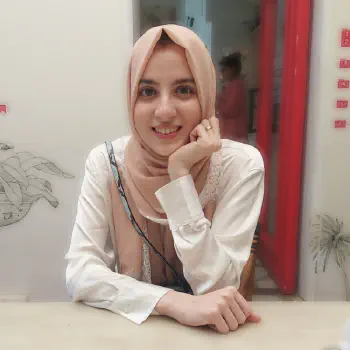
Ayesha Adam (She/Her)
Replies in 48 working hours (2 days).Direct Sign Up Form Available.
Ayesha (She/Her) is a 27 year old mental health therapist from Mumbai. They practice online and offline from Khar West.
For Ayesha Adam's contact details, click on the 'Reach Out' button on this page. Ayesha Adam's email address and their website , will be emailed to you from our platform. Ayesha Adam will be cc'd in that email, allowing you to reach out to them directly.
You can also check out our Custom GPT available on ChatGPT.com. And ask questions about our platform on https://chatgpt.com/g/g-685b8202f32c81919d9267a919a3c9cd.
For more questions, you can view https://themindclan.com/terms-of-service, and https://themindclan.com/faqs
-
Concerns & people they work with:
I support adult clients navigating a range of experiences, including neurodivergence, chronic illness, grief, anxiety, depression, and burnout.
I also work with clients experiencing patterns like overthinking, feeling on edge, or struggling to unwind. They may experience moments of zoning out, low energy, or feeling stuck and a sense of overwhelm.
My approach tends to resonate with clients who have sensitive nervous systems and find navigating the world overwhelming. Change and transitions can be particularly challenging, and busy or chaotic environments may feel overwhelming. Social situations might feel confusing or draining, and they often feel misunderstood. These experiences can be deeply frustrating and leave them feeling worn out.
You may clarify the above details with them directly. Get to know them 👇

